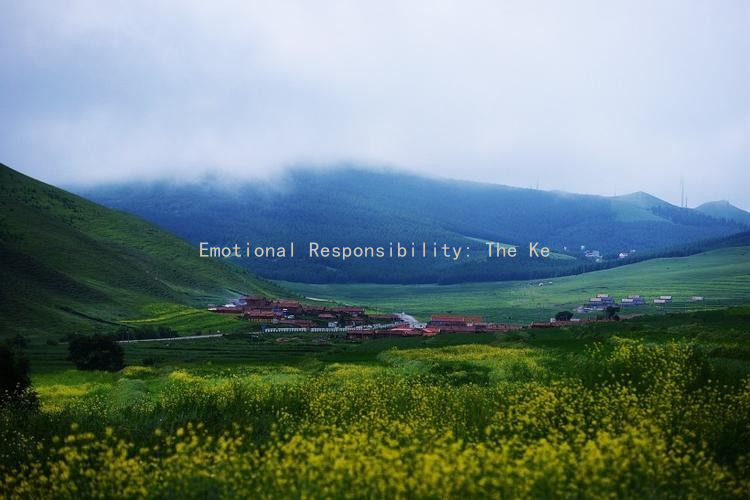Emotional Responsibility: The Key to Lasting Love and Understanding
In the realm of romantic relationships, the concept of emotional responsibility plays a crucial role in fostering lasting love and deep understanding between partners. Emotional responsibility refers to the ability to recognize, acknowledge, and manage our own emotions while also being sensitive to the emotions of others. Its about taking ownership of how we feel and how those feelings can impact our relationships. By embracing this vital principle, couples can navigate the complexities of love more effectively and create a solid foundation for their partnership.
One of the first steps to cultivating emotional responsibility is self-awareness. Understanding ones own emotions and triggers can significantly enhance communication in a relationship. When individuals take the time to reflect on how they feel and why they feel that way, they can articulate their emotions more clearly to their partner. For instance, rather than blaming their partner for feeling neglected, one might express, I feel lonely when we don’t spend enough quality time together, which opens the door for constructive dialogue instead of conflict.
Moreover, emotional responsibility encourages empathy. It is essential to consider how our words and actions may affect our partners feelings. Practicing empathy fosters a supportive environment where both individuals feel heard and validated. A simple acknowledgment like, I can see that this situation is upsetting you, can go a long way in diffusing tension and building trust.
Another critical aspect of emotional responsibility is accountability. In any relationship, misunderstandings and mistakes are inevitable. Admitting when we are wrong and taking responsibility for our actions shows maturity and respect for our partners feelings. For example, if one partner reacts defensively during an argument, recognizing that their reaction may have been disproportionate and apologizing for it can be a powerful gesture that strengthens the bond between them.

Furthermore, emotional responsibility entails setting healthy boundaries. This involves being clear about one’s own emotional needs and limitations. When partners communicate their boundaries openly, it reduces the likelihood of resentment building up over time. For instance, if one partner needs time alone to recharge after a stressful week, expressing this need rather than becoming withdrawn can prevent misunderstandings and feelings of neglect.
Lastly, practicing emotional responsibility involves patience and forgiveness. Both partners should understand that emotional growth is a journey filled with ups and downs. There will be moments when communication falters or feelings are unintentionally hurt. Embracing the idea that both partners are human and imperfect allows for a more compassionate approach to handling conflicts. Forgiveness is essential in moving forward and healing, ensuring that past grievances do not haunt the relationship.
In summary, emotional responsibility is a cornerstone of lasting love and understanding in any relationship. By fostering self-awareness, empathy, accountability, healthy boundaries, and forgiveness, couples can build a strong emotional connection that can withstand the tests of time. Ultimately, the journey of love becomes more rewarding when both partners commit to taking care of each other’s emotional well-being, creating a nurturing and fulfilling partnership.





